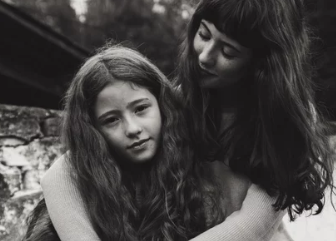
Talking to your child about difficult events
Depending on the student's developmental level, a parent can start the conversation in several ways…
Metaphorically, they can talk about how life has times of sunshine and times of rain. Sometimes the rain can turn into a storm when dealing with a difficult situation, but the stormy weather does not stay. It can be overwhelming during the storm, but we have supports that protect us during and after a storm. We can also learn to adapt to situations that are different after the storm passed. Remind the student that we need rain to make flowers, grass and trees grow. Like rain helps things in nature grow, we also grow in different ways when we go through something difficult. For instance, we might grow in our understanding or empathy toward others. We might grow and realize we have strength we did not know we had before.
Here is a general framework for a difficult conversation:
-
Talk to your child in a comfortable environment (not after an argument). Some children will be okay to face-to-face while others need to have their hands busy, so you may be engaged in something with them, such as a simple chore that does not require much attention (e.g., unloading dishwasher) or drawing/coloring for younger children.
-
Determine if your child is aware of any difficult situations that they might have heard about at school or otherwise. If not, determine what is appropriate for your child to know and be mindful of their age and what they can handle. Keep in mind, children are more susceptible to traumatic events than adults are.
-
Stick to the facts.
-
Be genuine, fully present, listen, validate their feelings, and empathize (important not to trivialize feelings). Listen reflectively.
-
If your child is not opening up or does not know where to start, it may be helpful to ask questions, such as ‘Where were you when you heard?’ ‘What were you doing when it happened?’ It may be difficult for them to put their thoughts and emotions into words.
-
Express that this may be a difficult issue, but there are some things they can do to get through it and you will be here for them. To build up their confidence in their abilities, help them think about how they effectively dealt with difficult situations in the past, even if the past event seems to pale in comparison to the event you are discussing. The goal is to get them thinking about overcoming the event using healthy coping skills. Discuss how to use coping skills at home, school, when they are with friends, etc.
-
Children need healthy relationships, especially during difficult times. Let them know you are there for them. Help them think of a few other positive adults they could turn to if needed.
-
Be open to talk about healthy ways to cope with stress and offer hope that they will be resilient. You may share some positive strategies that you use that help in your own life, recognizing each person and situation may be different. Coping strategies vary and are positive ways to manage difficult times, such as deep breathing, prayer, meditation, exercise, muscle relaxation, drawing, music, time with friends, etc.
-
Provide positive feedback and acknowledge their strengths even if it is as simple as saying, "I am glad we could talk about this. You seem to display maturity about this incident." Offer a hug and tell your child you love them.
-
Let your child know you love them and are here for them if they need anything.
-
Your child may respond in a variety of ways from being clingy, easily frustrated, withdrawing, etc. Be aware of changes in behavior and respond accordingly, especially if the concerns are ongoing.
-
-
If your child is in crisis, seek immediate help.
-
If concerns are ongoing, seek professional help if needed. Be aware the school counseling or YSB office at school is available if students need to talk more.
-
Remember, your child looks up to you and you can make a positive impact on their coping abilities by offering hope, providing loving support, having patience and modeling healthy coping strategies.
-
Be sure to monitor conversations on social media and seek help if needed.
Developmentally Appropriate Explanations:
-
Early elementary school children need brief, simple information that should be balanced with reassurances that their school and homes are safe. Remind them they have loving adults who are there to protect and care for them. Provide examples of what is done to help keep them safe and list ways their house and school are safe (e.g., doors locked).
-
Upper elementary and early middle school children will ask more questions about safety and what is actually being done to keep them safe. At this age, they may need clarification and help separating reality from fantasy. Share with the student how the school and home are safe (drills, monitoring system, efforts to provide safe schools).
-
Upper middle school and high school students will have strong opinions about the situation at hand (e.g., violence). Students at this age will have ideas on how to keep schools safe and what needs to be done to make it safer. They will also have views and ideas on how to prevent tragedies. Review what a student can do to keep their environments safe, including reporting threats, following safety guidelines, as well as seeking healthy emotional supports and engaging in positive social skills.
